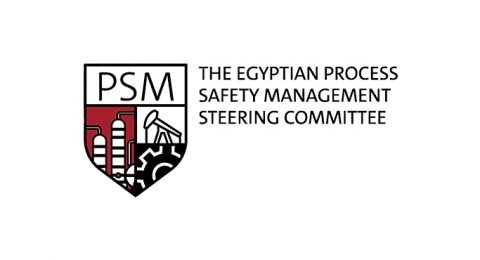For years, the privatization program has been oscillating back and forth with promises that fail to see the light of day. However, the government has been pushing forward with the program’s comeback in an attempt to flourish the investment climate and pump more foreign direct investments (FDIs) amid the coronavirus pandemic. One of the companies that has kickstarted the program and is currently being offered to the private sector is the state-owned oil distribution company, Wataniya Petroleum. Will this perhaps be the first of many national oil companies (NOCs) to be up for grabs by private sector investors?
Privatization in the Oil, Gas Sector
In December 2020, the Sovereign Fund of Egypt (SFE) has selected Wataniya Petroleum, a subsidiary of the National Service Products Organization (NSPO), to be offered to private sector investors as a first stage and then will be offered in the Egyptian Stock Exchange (EGX) where all Egyptians can invest in it, Minister of Planning and Economic Development and SFE Chairperson, Hala El-Said, stated.
El-Said added that other companies will soon be offered to the private sector as well with conditions to ensure the highest returns for the state and create investment opportunities for the private sector.
Following the announcement, SFE’s CEO Ayman Soliman told Bloomberg that Wataniya has already “attracted [interest from] a lot of investors” without providing any further details on the actual offering. However, he indicated that this will be the beginning of a saga of 10 NSPO subsidiaries that SFE seeks to offer for investment as an initial phase ahead of potential initial public offerings (IPOs) on the EGX.
Gulf newspapers, local press, and international media have reported on multiple occasions several “suitors” for Wataniya, who all asked for anonymity as the ongoing talks were said to be confidential. Egypt Oil & Gas (EOG) has attempted to contact the companies in question, but they either declined to comment or could not be reached.
The SFE has not confirmed whether it has received offers from foreign or Egyptian buyers. However, the financial services outlet Bloomberg reported on December 7 that Abu Dhabi National Oil Company (ADNOC), which produces most of the United Arab Emirates (UAE)’s oil, is interested in acquiring a majority stake in Wataniya Petroleum, according to people familiar with the talks.
ADNOC’s services arm, Abu Dhabi National Oil Company for Distribution, previously said it plans to expand in Egypt. The plan would come as part of the $20 billion joint investment platform ADNOC set up with the SFE last year. The partnership aims to establish strategic joint ventures, specialized funds or investment instruments, to invest in several sectors, including the energy sector.
Taqa Arabia has also been reported to be eyeing a majority stake in the company with the SFE as a partner, sources said.
Al-Borsa Newspaper has recently cited other anonymous sources familiar with the negotiations referring to two other UAE and Saudi companies in the running for the acquisition; namely Emirates National Oil Company (ENOC) and Aldrees Petroleum and Transport Services Company.
It is important to note that SFE had earmarked the leading local investment bank EFG-Hermes to advise on Wataniya’s stakes acquisition.
So, when is the sale going down? According to Al-Borsa, the bidding could begin due diligence by the end of January, paving the way for the sale to be wrapped up by the end of H1 2021.
Objectives of Privatization
The CEO of SFE previously stated that the main purpose of the SFE is to create investment opportunities in Egypt’s untapped assets. It should be noted that SFE and NSPO signed a cooperation agreement in February 2019 to offer some of NSPO’s subsidiaries to private investors.
“This is a historic shift in how Egypt’s economy is structured,” Planning Minister El-Saeed said in a separate interview with Bloomberg, describing it as the first opportunity for domestic and foreign investors to fully own army-affiliated companies.
“The state had to step in during the period where we suffered from political instability after 2011, this was a situation where the private sector shied away from investing,” said El-Saeed, who’s also a non-executive chairman of the sovereign fund. “Without these investments, Egypt’s economy would have shrunk, not grown.”
Soliman, on the other hand, was reported saying that the opportunities given by the fund “are a manifestation of the government’s direction to encourage private sector participation.” It seeks to promote “more sustainable investment offerings structured around public-private partnerships versus just privatization,” he said.
Boosting Foreign Direct Investments
According to the United Nations Conference on Trade and Development (UNCTAD) World Investment Report 2020, Egypt was the largest FDI recipient in Africa in 2019, with inflows increasing by 11% to $9 billion. “Economic reforms instituted by the government have improved macroeconomic stability and strengthened investor confidence in the country,” the report stated, adding that FDI was mainly driven by the oil and gas industry.
Petroleum FDI in FY 2018/19 increased to $9.5 billion (EGP 160.17 billion), marking the highest level in five years and contributing 75% of the total FDI inflows to Egypt, according to data by the Ministry of Petroleum and Mineral Resources.
Iuliia Kornieieva, Department of Macroeconomic Regulation & International Economic Relations, Academy of Financial Management in Ukraine, describes privatization as a tool of attracting FDI.
Kornieieva analyses the use of IPO as one of the best ways of privatization of large state-owned enterprises, carried out in order to attract long-term investment resources and improve the level of corporate governance.
She proposes a mechanism to support the privatization processes aimed at attracting foreign investments, addressing international financial organizations to facilitate successful IPOs of state-owned companies that are subject to privatization.
El-Said was quoted saying, “It is high time for these offerings. The Central Bank of Egypt has lowered interest rates, which drove many investors to the Stock Exchange in search for better profits.” She concluded by saying that “the NSPO owns more than 30 companies. It will test the market to determine the best approach for selling stakes in them that is both appealing to investors and will bring it maximum revenues.”








